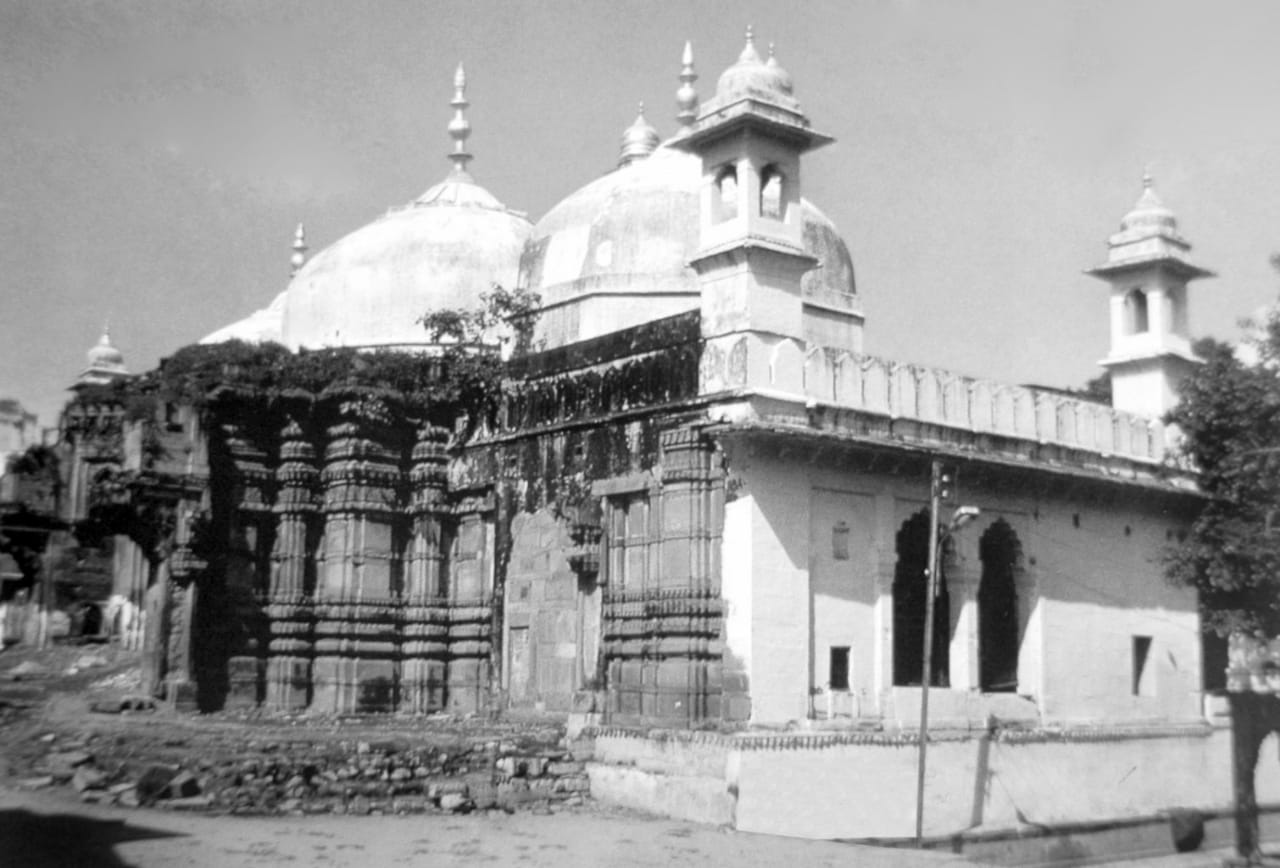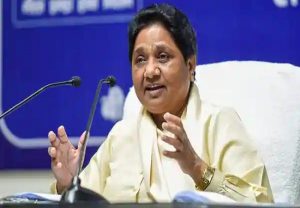Lucknow, June 2: Following the Varanasi district court’s ruling grouping all seven related claims and hearing them together, new schisms have formed among the Hindu petitioners in the Gyanvapi-Kashi Vishwanathan cases.
The Varanasi district court issued a ruling on May 23 enabling the unification of seven litigation pertaining to the Gyanvapi mosque-Kashi Vishwanath temple conflict that were filed in Varanasi’s various courts in 2021 and 2022. The court of Varanasi District Judge Ajaya Krishna Vishvesha stated in its decision that it “will be expedient in the interest of justice that all (seven) suits” be handled together and “may be consolidated.”
Four of the five Hindu women petitioners who filed a petition in a Varanasi local court last year seeking the right to worship Maa Shringar Gauri on the outer wall of the mosque complex next to the Kashi Vishwanath temple are in agreement on the consolidation of seven suits and hearing them all together, while one, Rakhi Singh, is opposed.
During the hearing on May 23, lawyers representing Laxmi Devi, Sita Sahu, Manju Vyas, and Rekha Pathak ? all Varanasi residents ? asked the court to merge the seven cases. However, Rakhi Singh’s attorney, Shivam Gaur, objected to the petition, telling the court that the parties (the five women) “are not a group.”
Rakhi Singh, who lives in Delhi, is the niece of Vishwa Vedic Sanathan Sangh leader Jitender Singh Vishen, who resides in Gonda. Vishen claims that combining the seven cases will undermine the “cause of the Hindus in order to gain control of the entire Gyanvapi mosque.
I intend to appeal the Varanasi District Court judge’s order of May 23 consolidating all seven cases. If this ruling is not contested, the Hindus of this country would lose access to the Gyanvapi mosque grounds. Six of the seven cases were filed by me through other persons.
As part of a plan, I had all of these cases filed by various persons with different goals. In May of last year, a plot was planned to keep me out of the game. I don?t want credit and I am only working for the cause of Hindutva while others want money and fame,? Vishen said.
Vishen further stated that his wife, Kiran Singh, filed the “most crucial case” of the seven. “The most important of the seven cases is the one filed on behalf of Lord Adi Vishweshwar by my wife Kiran Singh. It is the only lawsuit in which the Hindus seek to take over the whole Gyanvapi premises. And now that the cases have been combined without any issues being framed, we would lose the war if this ruling is not challenged at the Allahabad High Court. We’ll get it done soon,” Vishen continued.
The leader of the Vishwa Vedic Sanathan Sangh further argued that the Varanasi district court’s decision to make the petition of five women seeking permission to worship in a section of the mosque the “leading petition” when the seven petitions are considered together will weaken Hindus’ claim.
“Even if we win that case, what we will get is that those five women will be allowed to worship in a section of the structure known as the mosque. That is not our ultimate aim. Our ultimate objective is to obtain the entire premises for Hindus, which will not be accomplished even if we win the case in which my niece is the principal petitioner. “Our ultimate goal can only be achieved by winning the case filed by my wife Kiran Singh, which has been weakened by some lawyers,” Vishen said.
He said that the other four female petitioners’ lawyers, Hari Shankar Jain and his son Vishnu Shankar Jain, are just interested in generating money from the case. “They spend much of their time watching news programs… They are doing it for publicity, to catch the attention of the media, and to generate money. They have no intention of gaining control of the disputed structure,” Vishen alleged. Hari Shankar Jain, an advocate, stated that he would not respond to personal assaults made against him and his son.
“If someone says they will challenge an order in court, they have the right to do so. I’ll respond in court… I will not respond to personal claims. I’m trying my best with what I’ve got. “Everyone is free to say whatever they want,” Jain added.
Regarding Vishen’s claim that the cause of Gyanvapi will be lost due to case consolidation, Jain stated, “That is his understanding. As a lawyer, I have a different perspective than him… He knows absolutely nothing about the law. Everyone has the right to an opinion… All I do is my work. I never say anything negative about someone… I am fighting for the Hindutva cause and doing my best for my cases.”
The petitioners’ disagreement is not new. They have been at odds since May last year, when Civil Judge (Senior Division) Ravi Kumar Diwakar ordered a court-appointed Commission to conduct survey of the Kashi Vishwanath temple-Gyanvapi mosque complex.
The Commission was asked to “prepare videography of the action” and submit a report. Vishen’s family members, who are petitioners and the other four women appear to be at odds since then. This became clear on May 8, last year, when lawyer Hari Shankar Jain, who was representing the five women at the time, announced Rakhi Singh’s withdrawal from the suit. Vishen denied this the next day.
Then, in November of last year, Vishen stated that he would grant Chief Minister Yogi Adityanath power of attorney in all instances. Varanasi Police then issued Vishen a notice. Bisen said he was “under pressure” to withdraw from the Gyanvapi case, and that “false cases” were being brought against him because “I’m not withdrawing from the cases.”





